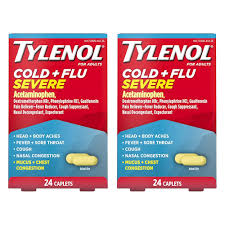
Introduction
Tylenol, a brand name for the drug acetaminophen, is one of the most commonly used over-the-counter medications in Canada and worldwide. Renowned for its effectiveness in relieving pain and reducing fever, acetaminophen is an essential medicine in many households. However, recent discussions around its safety profile and usage guidelines have raised awareness about its potential risks when used improperly.
What is Acetaminophen?
Acetaminophen, known for its analgesic (pain-relieving) and antipyretic (fever-reducing) properties, is widely recommended for headaches, muscle aches, arthritis, backaches, toothaches, colds, and fevers. It is available in various forms including tablets, capsules, liquid, and suppositories, making it accessible for different age groups, including children. According to Health Canada, acetaminophen is often considered the go-to option for pain relief during pregnancy, as it is generally accepted as safe when used as directed.
Recent Developments and Safety Concerns
Despite its widespread use, acetaminophen has been under scrutiny due to reports of hepatotoxicity (liver damage) associated with overdosing. The Canadian government has issued guidelines highlighting the importance of not exceeding the recommended daily dosage, especially for those with pre-existing liver conditions or those consuming alcohol regularly. In 2023, the Canadian Pharmacists Association launched a campaign to educate patients about the proper dosage and the risks of combining acetaminophen with other medications containing the same active ingredient, such as some cough and cold remedies.
Usage Tips and Recommendations
When using Tylenol or any acetaminophen product, it is critical to follow these guidelines:
- Dosage: Always adhere to the dosage guidelines provided on the packaging or by your healthcare provider. For adults, the maximum dose typically does not exceed 4,000 mg per day.
- Avoid Mixing: Combine acetaminophen with caution; check labels for products that may contain acetaminophen to avoid accidental overdose.
- Consult Professional Help: If you have concerns about liver health or require long-term pain management, consult a healthcare professional for alternatives.
Conclusion
Tylenol (acetaminophen) remains a cornerstone in pain and fever treatment, but it is essential for users to be aware of the risks associated with its usage. As ongoing educational efforts aim to reduce instances of misuse, it’s critical that consumers remain informed on best practices and potential dangers. Future health campaigns may focus increasingly on educating the public about safe practices regarding common over-the-counter medications, ensuring that Tylenol and acetaminophen continue to be used effectively and safely by all Canadians.



